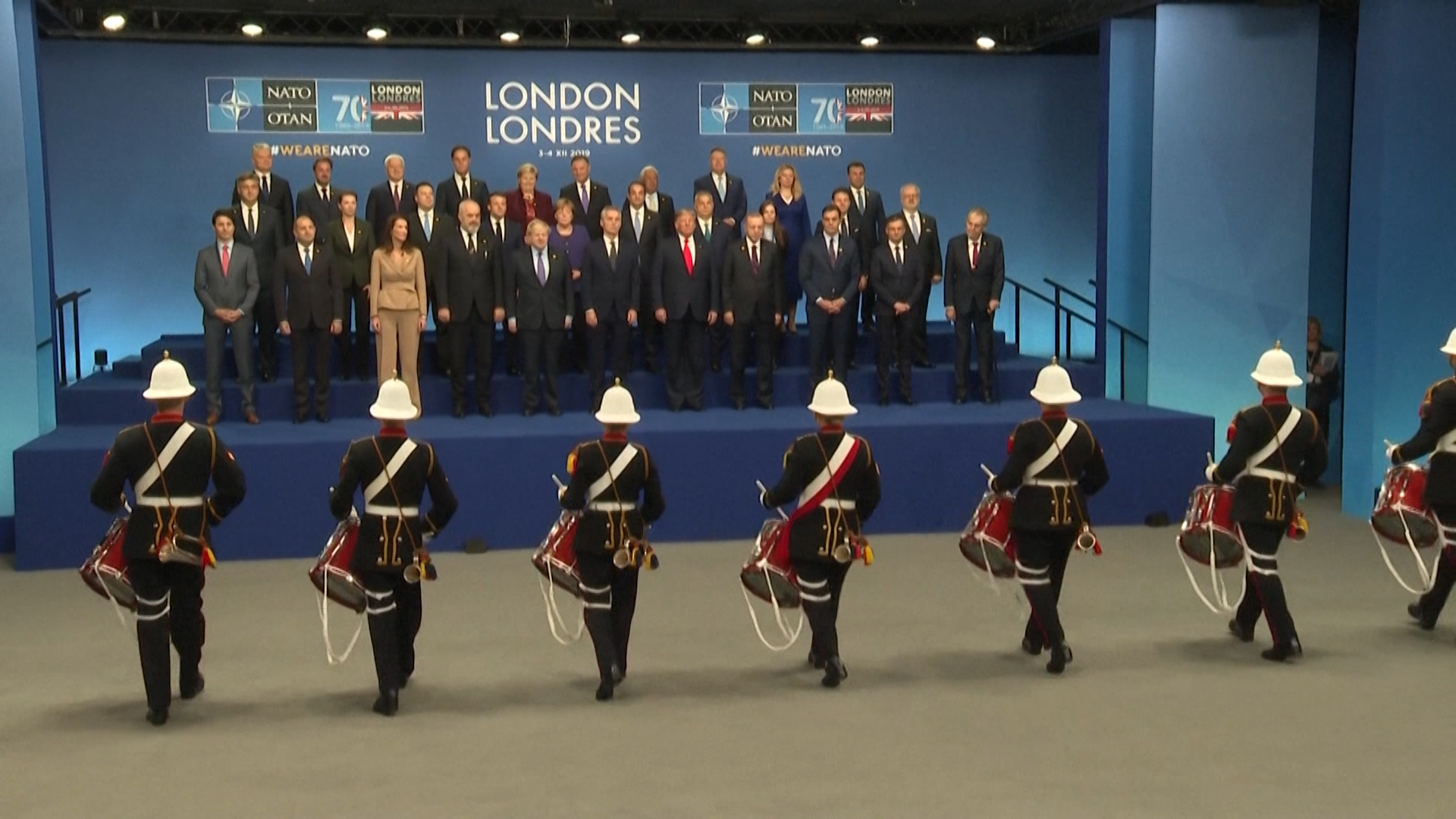02:12

U.S. President Donald Trump's brass-knuckles approach to diplomacy has grazed the cheek of America's European allies on more than one occasion these past four years.
He slapped billions of dollars worth of tariffs on European Union goods and once described the bloc as "a foe" on trade, just a day before sitting down with Russian President Vladimir Putin. He engaged in name-calling, dubbing Germany "delinquent" for failing to hit NATO defense spending targets. And he yanked the U.S. out of several multilateral deals.
To say relations are strained, would therefore be an understatement.
"Yeah, it's bad, to use a simple word," said Jeremy Shapiro, research director at the European Council on Foreign Relations. "The idea that the EU and U.S. can progress and prosper together when the president of the US so fundamentally thinks the EU is a bad idea isn't tenable and it's already showing in the relationship."
Many experts believe that if Trump is re-elected, he'll unleash a raft of new grievances around privacy and technology and double down on demands to reopen transatlantic trade agreements he doesn't like. If Europe doesn't play ball, Shapiro believes Trump will exploit divisions between Western and Eastern Europe to get his way.
"It's not the case that he's seen as a common enemy," said Shapiro. "Trump could create a huge divide within the EU, which would reduce its coherence on the international stage and reduce its attractiveness for its own members."

U.S. President Donald Trump holds a rally in Rome, Georgia. /Reuters
U.S. President Donald Trump holds a rally in Rome, Georgia. /Reuters
What happens to NATO if Trump is re-elected?
There's a similar concern for NATO. Experts say Trump's threat to pull out of the organization and scolding over defense spending has cast doubt on the value of the alliance, undermining it politically.
"The political unity of the alliance is its best weapon," said Fabrice Pothier, the chief strategy officer at Rasmussen Global. "It's what makes Russia and other adversaries really think twice before going after the alliance."
Pothier, who is also the former director of policy planning for NATO Secretary Generals Anders Fogh Rasmussen and Jens Stoltenberg, is concerned that if Trump is re-elected, things could spill over to the battlefield, especially if the US President follows through with plans to reduce U.S. forces in Europe.
"I think it would start putting cracks into the NATO strengths on the ground and raise some real operational issues," he said. "To put it simply, the European allies need the U.S. forces and logistics to have a credible, efficient capacity to deploy forces from the West to the East should there be a crisis."

A child holds a sign as he attends a Joe Biden campaign event in Philadelphia, Pennsylvania. /Reuters
A child holds a sign as he attends a Joe Biden campaign event in Philadelphia, Pennsylvania. /Reuters
But a Joe Biden victory wouldn't necessarily be a cure-all. The former vice president is expected to say all the right things about NATO – that the U.S. is committed and security is non-negotiable – but behind closed doors, he'll likely keep up the pressure on defense spending, just as his former boss Barack Obama did.
Pothier thinks a Biden administration will also be reluctant to commit U.S. forces to operational theaters, especially in the wider Middle East. He also points to Biden's resistance to the troop surge in Afghanistan as proof.
"I think that will be a bit of a reality check for the European allies that think Biden will bring back the good old transatlantic ties."

A section of the Berlin Wall with the image of former U.S. President John F. Kennedy displayed outside the European Commission. It represents the pinnacle of the transatlantic relationship, with a shared vision of the future so powerful it could literally tear down walls. Those days may be over for both sides. /Reuters
A section of the Berlin Wall with the image of former U.S. President John F. Kennedy displayed outside the European Commission. It represents the pinnacle of the transatlantic relationship, with a shared vision of the future so powerful it could literally tear down walls. Those days may be over for both sides. /Reuters
Joe Biden 'not a panacea'
Overall, a Biden win on November 3 would be largely welcomed in Europe. He has pledged to rejoin the Paris Accord and re-engage on the Iran nuclear deal which would smooth over Europe's concerns about the U.S.'s commitment to multilateralism. But experts say a Biden White House won't mean a return to the pre-Trump days.
"Obviously Biden is not a panacea and the democrats are not a panacea for the EU-U.S. relationship," said Shapiro. "I think that under a Biden administration they won't have fewer disputes, but they will be better at resolving them in a way that doesn't threaten the overall relationship."
The good old days of the transatlantic relationship could be over for both sides. As the U.S. turns inwards, Europe is striving for more self-reliance. The partnership of the future won't be in looking backward, but rather in reinventing going forward, regardless of who wins the White House in 2020.